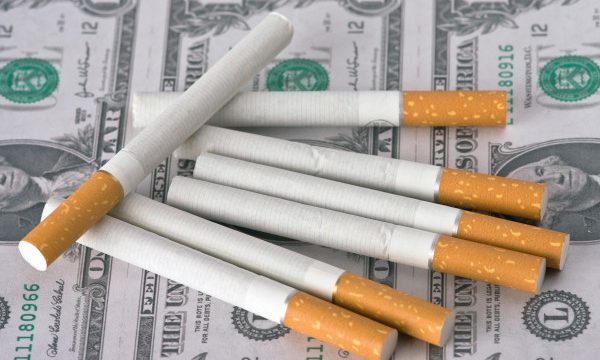Philly cigarette tax ‘will not come close’ to solving district’s financial problems

By Eric Boehm | Watchdog.org
A new $2-per-pack tax on cigarettes in Philadelphia will help keep the city’s school district afloat — and will help keep 1,000 employees on the job — this year, but does little to solve the underlying financial issues in the district.
NOT A SOLUTION: The cigarette tax is a temporary fix, but Philadelphia schools have many more needs.
In a note released this week, Moody’s Investors Service, a credit rating agency, called the new tax a positive development for the school district’s credit rating. The new cigarette tax is expected to generate about $50 million this year, helping to plug an $80 million budget shortfall.
But Moody’s also warned that city and state officials will find themselves back in the same spot next year unless further structural and financial reforms are made.
“The tax will not come close to solving the district’s fiscal problems,” Moody’s concluded. “The district will continue to struggle financially and academically and will likely beseech the city and state government for increased funding each year, although it is unlikely to get everything it asks for.”
That’s the cycle we’ve been stuck in for a few years in a row: state and local officials spend the summer months finding a new, last-minute way to raise revenue for the district. Last year, Philadelphia had to borrow money on behalf of the school district to close a $120 million budget gap, after state lawmakers approved a local option sales tax to support the district.
As Moody’s points out, the cigarette tax is the latest, but probably not the last, of these short-term solutions.
The district plans to make $32 million in budget cuts this year, but has already made deep cuts in staffing and administration to make ends meet in previous budget years.
The extra money from the cigarette tax will help this year, but cigarette tax revenue is expected to decline in future years as smokers either quit or start purchasing their cigarettes outside city limits.
Meanwhile, costs at the school district will continue to increase. One study projects the district’s pension costs will climb from $73 million in 2011 to $349 million by 2020.
District officials still seek concessions from the district’s teachers’ union to help close some of that long-term funding gap.
According to Moody’s, the Philadelphia School District’s rating is one of the lowest of any school district in the country. Only Detroit Public Schools (B3 negative) and Pontiac (Michigan) City School District (Caa2 negative) are rated lower.
Boehm can be reached at Eric@PAIndependent.com and follow @PAIndependent on Twitter for more.







